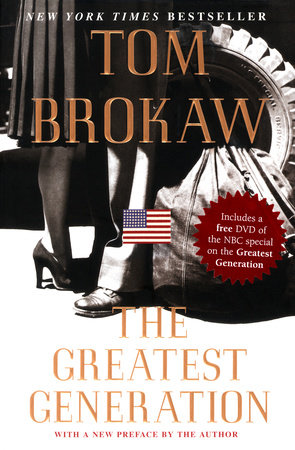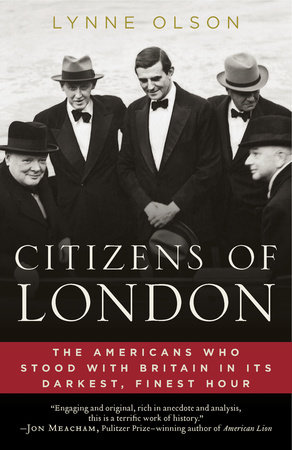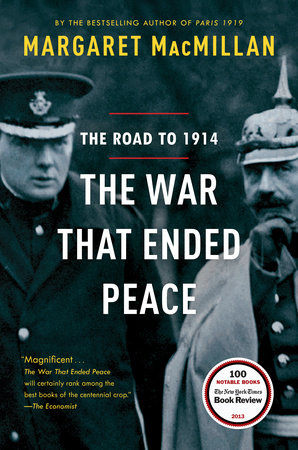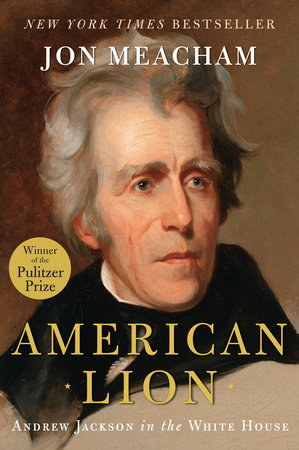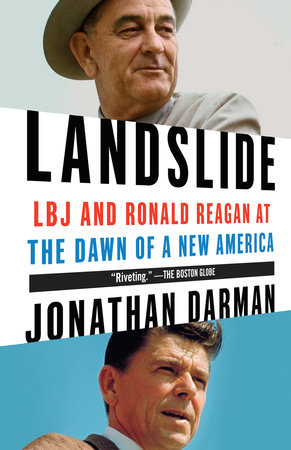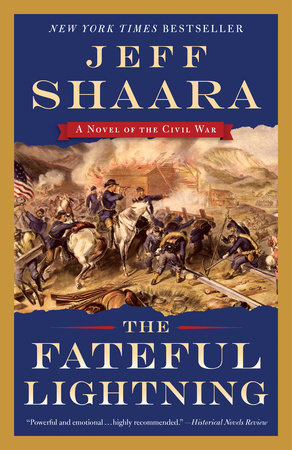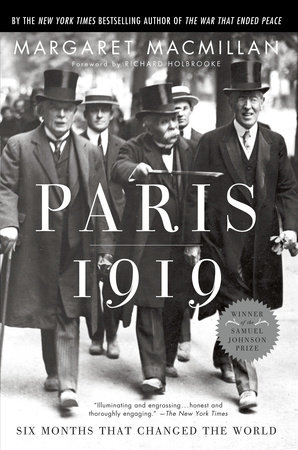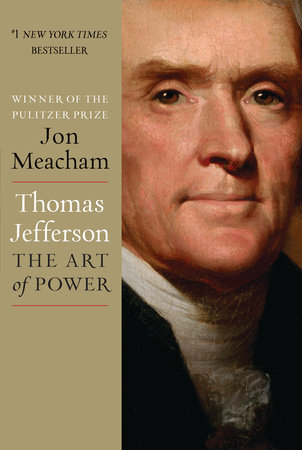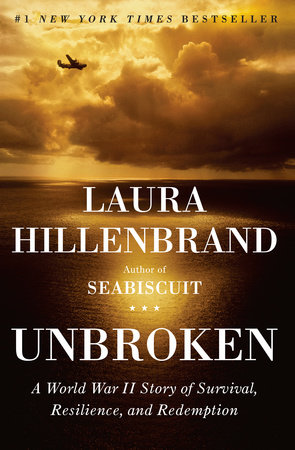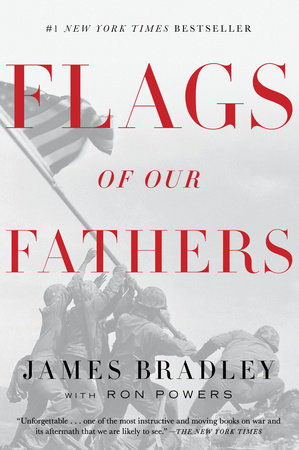10 Must-Reads for the History Buff in Your Life
A list by Random House
“If you want to understand today, you have to search yesterday.” So said American novelist and humanitarian Pearl Buck—but these days, who has time to search yesterday? We know you’re busy, so we’ve done the searching for you, and rounded up 10 wonderful historical titles sure to shed light on past and present alike.
No. 01
The Greatest Generation
Tom Brokaw
“Moving . . . a tribute to the members of the World War II generation to whom we Americans and the world owe so much.”—The New York Times Book Review
In this magnificent testament to a nation and her people, Tom Brokaw brings to life the extraordinary stories of a generation that gave new meaning to courage, sacrifice, and honor.
From military heroes to community leaders to ordinary citizens, he profiles men and women who served their country with valor, then came home and transformed it: Senator Daniel Inouye, decorated at the front, fighting prejudice at home; Martha Settle Putney, one of the first black women to serve in the newly formed Women’s Army Corps; Charles Van Gorder, a doctor who set up a MASH-like medical facility in the middle of battle, then opened a small clinic in his hometown; Navy pilot and future president George H. W. Bush, assigned to read the mail of the enlisted men under him, who says that in doing so he “learned about life”; and many other laudable Americans.
To this generation that gave so much and asked so little, Brokaw offers eloquent tribute in true stories of everyday heroes in extraordinary times.
No. 02
Citizens of London
The Americans Who Stood with Britain in Its Darkest, Finest Hour
Lynne Olson
No. 03
The War That Ended Peace
The Road to 1914
Margaret MacMillan
NAMED ONE OF THE BEST BOOKS OF THE YEAR BY
The New York Times Book Review • The Economist • The Christian Science Monitor • Bloomberg Businessweek • The Globe and Mail
From the bestselling and award-winning author of Paris 1919 comes a masterpiece of narrative nonfiction, a fascinating portrait of Europe from 1900 up to the outbreak of World War I.
The century since the end of the Napoleonic wars had been the most peaceful era Europe had known since the fall of the Roman Empire. In the first years of the twentieth century, Europe believed it was marching to a golden, happy, and prosperous future. But instead, complex personalities and rivalries, colonialism and ethnic nationalisms, and shifting alliances helped to bring about the failure of the long peace and the outbreak of a war that transformed Europe and the world.
The War That Ended Peace brings vividly to life the military leaders, politicians, diplomats, bankers, and the extended, interrelated family of crowned heads across Europe who failed to stop the descent into war: in Germany, the mercurial Kaiser Wilhelm II and the chief of the German general staff, Von Moltke the Younger; in Austria-Hungary, Emperor Franz Joseph, a man who tried, through sheer hard work, to stave off the coming chaos in his empire; in Russia, Tsar Nicholas II and his wife; in Britain, King Edward VII, Prime Minister Herbert Asquith, and British admiral Jacky Fisher, the fierce advocate of naval reform who entered into the arms race with Germany that pushed the continent toward confrontation on land and sea.
There are the would-be peacemakers as well, among them prophets of the horrors of future wars whose warnings went unheeded: Alfred Nobel, who donated his fortune to the cause of international understanding, and Bertha von Suttner, a writer and activist who was the first woman awarded Nobel’s new Peace Prize. Here too we meet the urbane and cosmopolitan Count Harry Kessler, who noticed many of the early signs that something was stirring in Europe; the young Winston Churchill, then First Lord of the Admiralty and a rising figure in British politics; Madame Caillaux, who shot a man who might have been a force for peace; and more. With indelible portraits, MacMillan shows how the fateful decisions of a few powerful people changed the course of history.
Taut, suspenseful, and impossible to put down, The War That Ended Peace is also a wise cautionary reminder of how wars happen in spite of the near-universal desire to keep the peace. Destined to become a classic in the tradition of Barbara Tuchman’s The Guns of August, The War That Ended Peace enriches our understanding of one of the defining periods and events of the twentieth century.
Praise for The War That Ended Peace
“Magnificent . . . The War That Ended Peace will certainly rank among the best books of the centennial crop.”—The Economist
“Superb.”—The New York Times Book Review
“Masterly . . . marvelous . . . Those looking to understand why World War I happened will have a hard time finding a better place to start.”—The Christian Science Monitor
“The debate over the war’s origins has raged for years. Ms. MacMillan’s explanation goes straight to the heart of political fallibility. . . . Elegantly written, with wonderful character sketches of the key players, this is a book to be treasured.”—The Wall Street Journal
“A magisterial 600-page panorama.”—Christopher Clark, London Review of Books
No. 04
American Lion
Andrew Jackson in the White House
Jon Meacham
“Marvelously readable . . . brings alive a profoundly flawed but dazzlingly charismatic American original.”—USA Today
Beloved and hated, venerated and reviled, Andrew Jackson was an orphan who fought his way to the pinnacle of power, bending the nation to his will in the cause of democracy. Jackson’s election in 1828 ushered in a new and lasting era in which the people, not distant elites, were the guiding force in American politics. He gave voice to the hopes and the fears of a restless, changing nation facing challenging times at home and threats abroad. To tell the saga of Jackson’s presidency, acclaimed author Jon Meacham draws on newly discovered family letters and papers, detailing the human drama—the family, the women, and the inner circle of advisers—that shaped Jackson’s private world through years of storm and victory.
Jackson was a battle-hardened warrior, the founder of the Democratic Party, and the architect of the presidency as we know it. His story is one of violence, sex, courage, and tragedy. With his powerful persona, his evident bravery, and his mystical connection to the people, Jackson moved the White House from the periphery of government to the center of national action, articulating a vision of change that challenged entrenched interests to heed the popular will—or face his formidable wrath.
Jackson was the most contradictory of men. He was, in short, a lot like his country: alternately kind and vicious, brilliant and blind; and a man who fought a lifelong war to keep the republic safe—no matter what it took.
No. 05
Landslide
LBJ and Ronald Reagan at the Dawn of a New America
Jonathan Darman
In this riveting work of narrative nonfiction, Jonathan Darman tells the story of two giants of American politics, Lyndon Johnson and Ronald Reagan, and shows how, from 1963 to 1966, these two men—the same age, and driven by the same heroic ambitions—changed American politics forever.
The liberal and the conservative. The deal-making arm twister and the cool communicator. The Texas rancher and the Hollywood star. Opposites in politics and style, Johnson and Reagan shared a defining impulse: to set forth a grand story of America, a story in which he could be the hero. In the tumultuous days after the Kennedy assassination, Johnson and Reagan each, in turn, seized the chance to offer the country a new vision for the future. Bringing to life their vivid personalities and the anxious mood of America in a radically transformative time, Darman shows how, in promising the impossible, Johnson and Reagan jointly dismantled the long American tradition of consensus politics and ushered in a new era of fracture. History comes to life in Darman’s vivid, fly-on-the wall storytelling.
Even as Johnson publicly revels in his triumphs, we see him grow obsessed with dark forces he believes are out to destroy him, while his wife, Lady Bird, urges her husband to put aside his paranoia and see the world as it really is. And as the war in Vietnam threatens to overtake his presidency, we witness Johnson desperately struggling to compensate with ever more extravagant promises for his Great Society.
On the other side of the country, Ronald Reagan, a fading actor years removed from his Hollywood glory, gradually turns toward a new career in California politics. We watch him delivering speeches to crowds who are desperate for a new leader. And we see him wielding his well-honed instinct for timing, waiting for Johnson’s majestic promises to prove empty before he steps back into the spotlight, on his long journey toward the presidency.
From Johnson’s election in 1964, the greatest popular-vote landslide in American history, to the pivotal 1966 midterms, when Reagan burst forth onto the national stage, Landslide brings alive a country transformed—by riots, protests, the rise of television, the shattering of consensus—and the two towering personalities whose choices in those moments would reverberate through the country for decades to come.
Praise for Landslide
“Richly detailed . . . Landslide is a vivid retelling of a tumultuous three years in American history, and Mr. Darman captures in full the personalities and motives of two of the twentieth century’s most consequential politicians.”—The New York Times
“Novel and even surprising . . . Landslide deftly reminds readers that Johnson and Reagan both trafficked in grandiose oratory and promoted utopian visions at odds with the social complexity of modern America.”—The Washington Post
“Riveting . . . Darman portrays [Johnson and Reagan] as polar opposites of political attraction. . . . Animated by the artful insight that they were men of disappointment headed toward an appointment with history . . . A tale about myths and a nation that believed them, about a world of a half century ago now gone forever.”—The Boston Globe
“Alert to the subtleties of politics and political history, Darman, a former correspondent for Newsweek, nimbly explores delusion and self-delusion at the highest levels.”—The New York Times Book Review
No. 06
The Fateful Lightning
A Novel of the Civil War
Jeff Shaara
November 1864: As the Civil War rolls into its fourth bloody year, the tide has turned decidedly in favor of the Union. A grateful Abraham Lincoln responds to Ulysses S. Grant’s successes by bringing the general east, promoting Grant to command the entire Union war effort, while William Tecumseh Sherman now directs the Federal forces that occupy all of Tennessee.
In a massive surge southward, Sherman conquers the city of Atlanta, sweeping aside the Confederate army under the inept leadership of General John Bell Hood. Pushing through northern Georgia, Sherman’s legendary March to the Sea shoves away any Rebel presence, and by Christmas 1864 the city of Savannah falls into the hands of “Uncle Billy.” Now there is but one direction for Sherman to go. In his way stands the last great hope for the Southern cause, General Joseph E. Johnston.
In the concluding novel of his epic Civil War tetralogy, Jeff Shaara tells the dramatic story of the final eight months of battle from multiple perspectives: the commanders in their tents making plans for total victory, as well as the ordinary foot soldiers and cavalrymen who carried out their orders until the last alarum sounded. Through Sherman’s eyes, we gain insight into the mind of the general who vowed to “make Georgia howl” until it surrendered. In Johnston, we see a man agonizing over the limits of his army’s power, and accepting the burden of leading the last desperate effort to ensure the survival of the Confederacy.
The Civil War did not end quietly. It climaxed in a storm of fury that lay waste to everything in its path. The Fateful Lightning brings to life those final brutal, bloody months of fighting with you-are-there immediacy, grounded in the meticulous research that readers have come to expect from Jeff Shaara.
Praise for The Fateful Lightning
“Powerful and emotional . . . highly recommended.”—Historical Novels Review
“Outstanding . . . Shaara combines his extensive knowledge of military history with his consummate skill as a storyteller.”—Booklist
“Readers . . . looking for an absorbing novel will be well rewarded.”—The Clarion-Ledger
“A great accomplishment and a more than fitting conclusion to Shaara’s work on the Civil War.”—Bookreporter
No. 07
Paris 1919
Six Months That Changed the World
Margaret MacMillan
Winner of the Samuel Johnson Prize • Winner of the PEN Hessell Tiltman Prize • Winner of the Duff Cooper Prize
Between January and July 1919, after “the war to end all wars,” men and women from around the world converged on Paris to shape the peace. Center stage, for the first time in history, was an American president, Woodrow Wilson, who with his Fourteen Points seemed to promise to so many people the fulfillment of their dreams. Stern, intransigent, impatient when it came to security concerns and wildly idealistic in his dream of a League of Nations that would resolve all future conflict peacefully, Wilson is only one of the larger-than-life characters who fill the pages of this extraordinary book. David Lloyd George, the gregarious and wily British prime minister, brought Winston Churchill and John Maynard Keynes. Lawrence of Arabia joined the Arab delegation. Ho Chi Minh, a kitchen assistant at the Ritz, submitted a petition for an independent Vietnam.
For six months, Paris was effectively the center of the world as the peacemakers carved up bankrupt empires and created new countries. This book brings to life the personalities, ideals, and prejudices of the men who shaped the settlement. They pushed Russia to the sidelines, alienated China, and dismissed the Arabs. They struggled with the problems of Kosovo, of the Kurds, and of a homeland for the Jews.
The peacemakers, so it has been said, failed dismally; above all they failed to prevent another war. Margaret MacMillan argues that they have unfairly been made the scapegoats for the mistakes of those who came later. She refutes received ideas about the path from Versailles to World War II and debunks the widely accepted notion that reparations imposed on the Germans were in large part responsible for the Second World War.
Praise for Paris 1919
“It’s easy to get into a war, but ending it is a more arduous matter. It was never more so than in 1919, at the Paris Conference. . . . This is an enthralling book: detailed, fair, unfailingly lively. Professor MacMillan has that essential quality of the historian, a narrative gift.” —Allan Massie, The Daily Telegraph (London)
No. 08
Thomas Jefferson: The Art of Power
Jon Meacham
“Probably the best single-volume biography of Jefferson ever written.”—Gordon S. Wood
A BEST BOOK OF THE YEAR: The New York Times Book Review, The Washington Post, Entertainment Weekly, The Seattle Times, St. Louis Post-Dispatch, BookPage
This magnificent biography brings vividly to life an extraordinary man and his remarkable times, giving us Thomas Jefferson the man, the politician, and the president. A Founder whose understanding of power and of human nature enabled him to move men and marshal ideas, to learn from his mistakes and to prevail, Jefferson was passionate about many things—women, his family, science, architecture, gardening, Monticello, Paris, and more. He strove, despite fierce opposition, to realize his vision: the creation, survival, and success of popular government in America.
Drawing on archives in the United States, England, and France, as well as unpublished transcripts of Jefferson presidential papers, Jon Meacham shows us the personal Jefferson, a man of appetite, sensuality, and passion. He also presents Jefferson as the most successful political leader of the early republic, and perhaps in all American history, a leader who found the means to endure and to win. His story resonates today not least because he led his nation through ferocious partisanship amid economic change and external threats. Jefferson also embodies an eternal drama, the struggle of the leadership of a nation to achieve greatness in a difficult and confounding world.
No. 09
Unbroken
A World War II Story of Survival, Resilience, and Redemption
Laura Hillenbrand
“Extraordinarily moving . . . a powerfully drawn survival epic.”—The Wall Street Journal
Hailed as the top nonfiction book of the year by Time magazine • Winner of the Los Angeles Times Book Prize for biography
On a May afternoon in 1943, an Army Air Forces bomber crashed into the Pacific Ocean and disappeared, leaving only a spray of debris and a slick of oil, gasoline, and blood. Then, on the ocean surface, a face appeared. It was that of a young lieutenant, the plane’s bombardier, who was struggling to a life raft and pulling himself aboard. So began one of the most extraordinary odysseys of the Second World War.
The lieutenant’s name was Louis Zamperini. In boyhood, he’d been a cunning and incorrigible delinquent, breaking into houses, brawling, and fleeing his home to ride the rails. As a teenager, he had channeled his defiance into running, discovering a prodigious talent that had carried him to the Berlin Olympics and within sight of the four-minute mile. But when war had come, the athlete had become an airman, embarking on a journey that led to his doomed flight, a tiny raft, and a drift into the unknown.
Ahead of Zamperini lay thousands of miles of open ocean, leaping sharks, a foundering raft, thirst and starvation, enemy aircraft, and, beyond, a trial even greater. Driven to the limits of endurance, Zamperini would answer desperation with ingenuity; suffering with hope, resolve, and humor; brutality with rebellion. His fate, whether triumph or tragedy, would be suspended on the fraying wire of his will.
Laura Hillenbrand writes with the same rich and vivid narrative voice she displayed in Seabiscuit. Telling an unforgettable story of a man’s journey into extremity, Unbroken is a testament to the resilience of the human mind, body, and spirit.
No. 10
Flags of Our Fathers
James Bradley with Ron Powers
In February 1945, American Marines plunged into the surf at Iwo Jima—and into history. Through a hail of machine-gun and mortar fire that left the beaches strewn with comrades, they battled to the island’s highest peak. And after climbing through a landscape of hell itself, they raised a flag.
Now the son of one of the flagraisers has written a powerful account of six very different young men who came together in a moment that will live forever.
To his family, John Bradley never spoke of the photograph or the war. But after his death at age seventy, his family discovered closed boxes of letters and photos. In Flags of Our Fathers, James Bradley draws on those documents to retrace the lives of his father and the men of Easy Company. Following these men’s paths to Iwo Jima, James Bradley has written a classic story of the heroic battle for the Pacific’s most crucial island—an island riddled with Japanese tunnels and 22,000 fanatic defenders who would fight to the last man.
But perhaps the most interesting part of the story is what happened after the victory. The men in the photo—three were killed during the battle—were proclaimed heroes and flown home, to become reluctant symbols. For two of them, the adulation was shattering. Only James Bradley’s father truly survived, displaying no copy of the famous photograph in his home, telling his son only: “The real heroes of Iwo Jima were the guys who didn’t come back.”
Few books ever have captured the complexity and furor of war and its aftermath as well as Flags of Our Fathers. A penetrating, epic look at a generation at war, this is history told with keen insight, enormous honesty, and the passion of a son paying homage to his father. It is the story of the difference between truth and myth, the meaning of being a hero, and the essence of the human experience of war.


